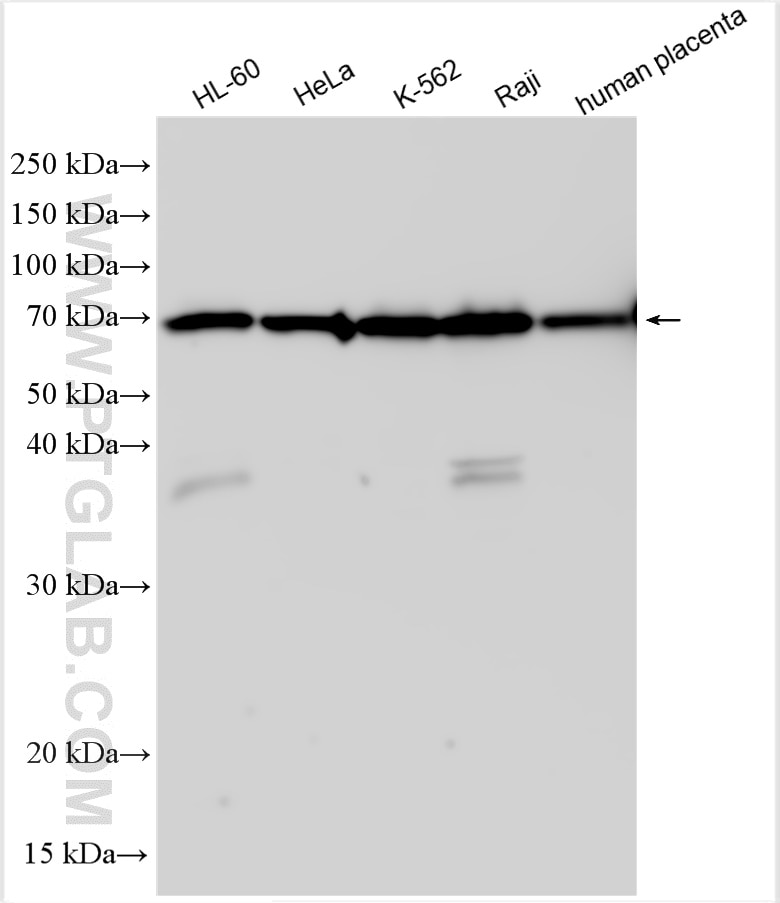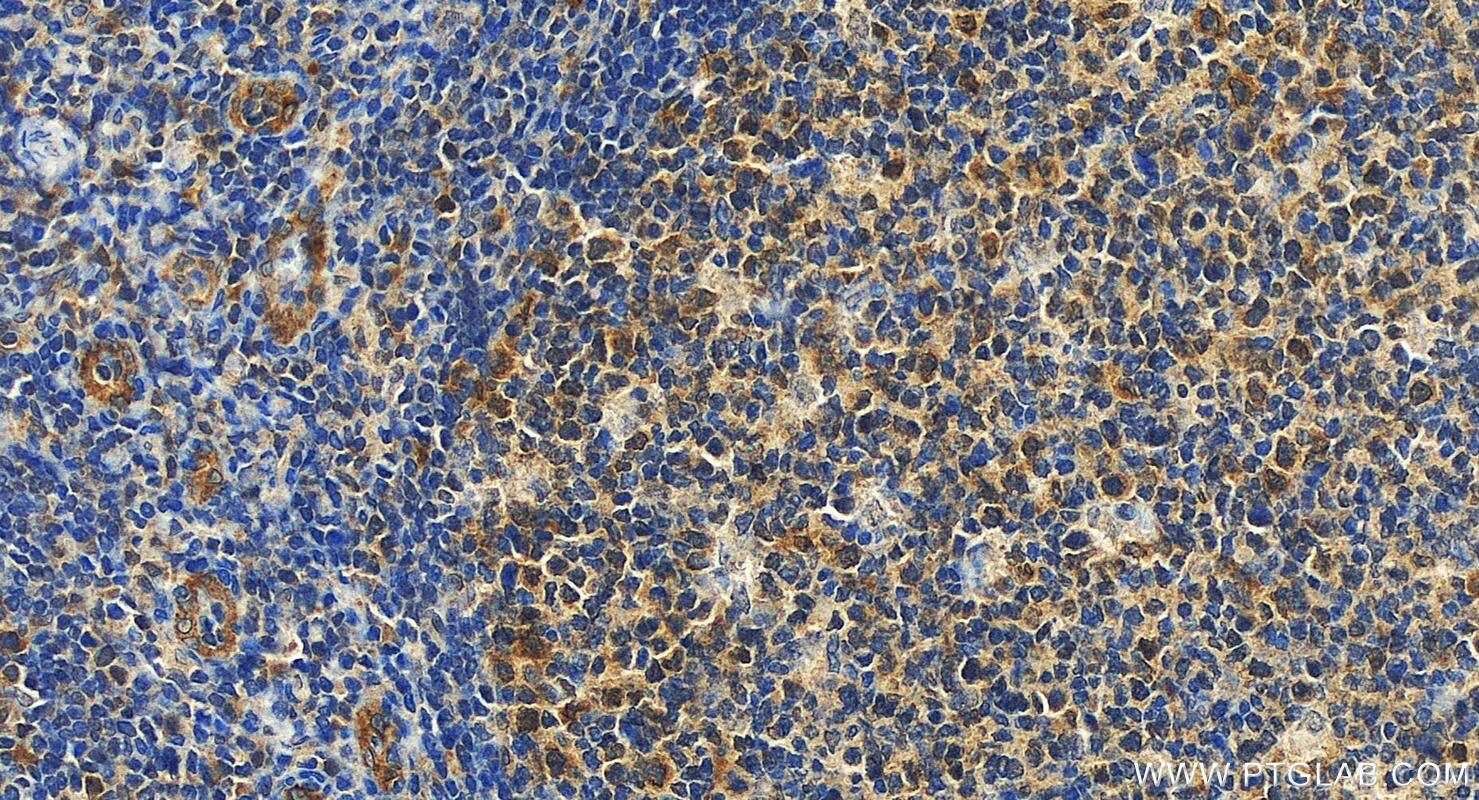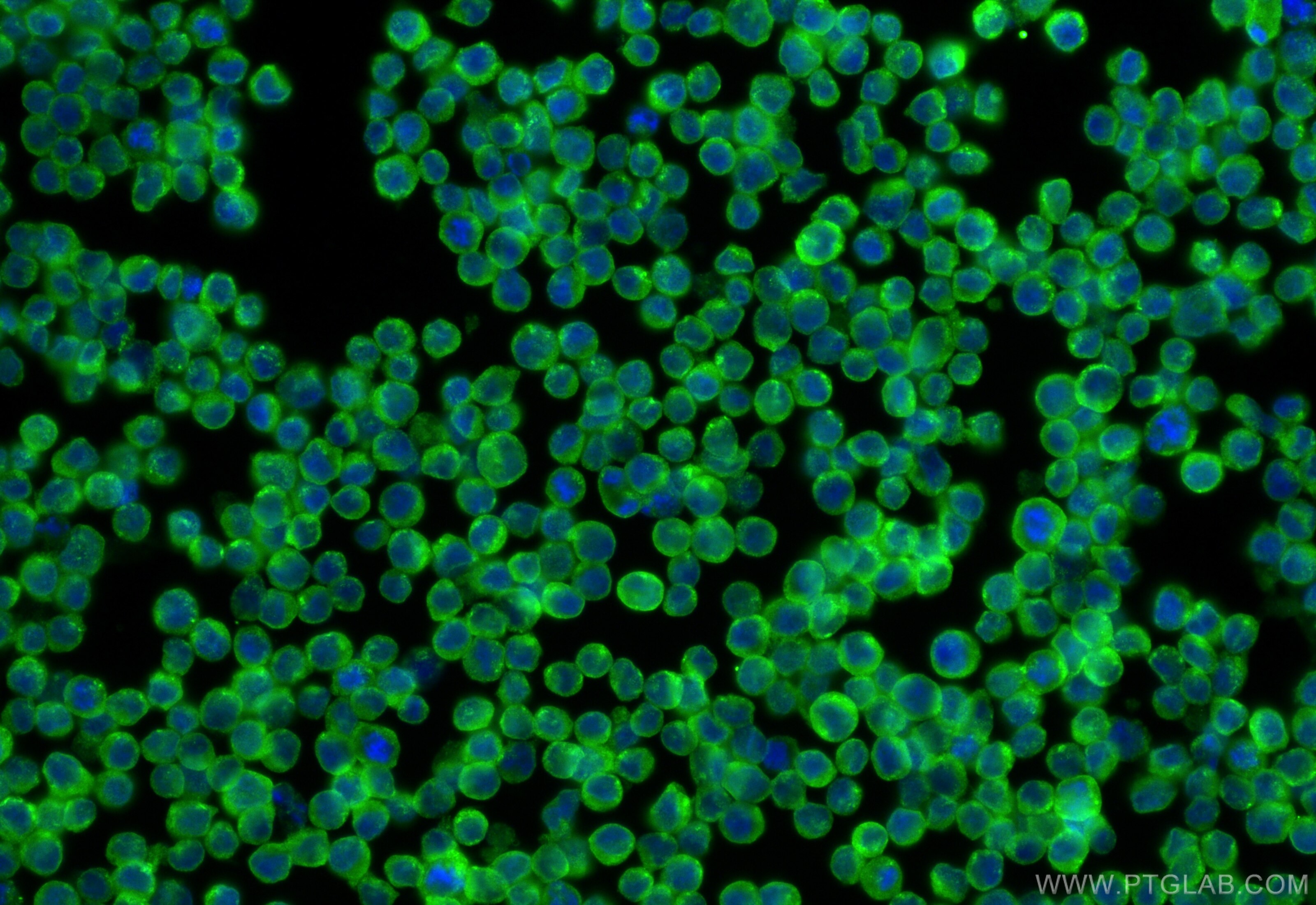Validation Data Gallery
Tested Applications
| Positive WB detected in | HL-60 cells, HeLa cells, K-562 cells, Raji cells, human placenta tissue |
| Positive IHC detected in | human tonsillitis tissue Note: suggested antigen retrieval with TE buffer pH 9.0; (*) Alternatively, antigen retrieval may be performed with citrate buffer pH 6.0 |
| Positive IF/ICC detected in | Raji cells |
Recommended dilution
| Application | Dilution |
|---|---|
| Western Blot (WB) | WB : 1:500-1:3000 |
| Immunohistochemistry (IHC) | IHC : 1:200-1:800 |
| Immunofluorescence (IF)/ICC | IF/ICC : 1:200-1:800 |
| It is recommended that this reagent should be titrated in each testing system to obtain optimal results. | |
| Sample-dependent, Check data in validation data gallery. | |
Product Information
24145-1-AP targets CD320 in WB, IHC, IF/ICC, ELISA applications and shows reactivity with human samples.
| Tested Reactivity | human |
| Host / Isotype | Rabbit / IgG |
| Class | Polyclonal |
| Type | Antibody |
| Immunogen |
CatNo: Ag21445 Product name: Recombinant human CD320 protein Source: e coli.-derived, PGEX-4T Tag: GST Domain: 36-229 aa of BC000668 Sequence: SPLSTPTSAQAAGPSSGSCPPTKFQCRTSGLCVPLTWRCDRDLDCSDGSDEEECRIEPCTQKGQCPPPPGLPCPCTGVSDCSGGTDKKLRNCSRLACLAGELRCTLSDDCIPLTWRCDGHPDCPDSSDELGCGTNEILPEGDATTMGPPVTLESVTSLRNATTMGPPVTLESVPSVGNATSSSAGDQSGSPTAY 相同性解析による交差性が予測される生物種 |
| Full Name | CD320 molecule |
| Calculated molecular weight | 29 kDa |
| Observed molecular weight | 70 kDa |
| GenBank accession number | BC000668 |
| Gene Symbol | CD320 |
| Gene ID (NCBI) | 51293 |
| RRID | AB_3669431 |
| Conjugate | Unconjugated |
| Form | |
| Form | Liquid |
| Purification Method | Antigen Affinity purified |
| UNIPROT ID | Q9NPF0 |
| Storage Buffer | PBS with 0.02% sodium azide and 50% glycerol{{ptg:BufferTemp}}7.3 |
| Storage Conditions | Store at -20°C. Stable for one year after shipment. Aliquoting is unnecessary for -20oC storage. |
Background Information
CD320, also known as 8D6, 8D6A or TCblR, is a single-pass type I membrane protein containing 2 LDL-receptor class A domains. Expressed abundantly on follicular dendritic cells (FDCs), CD320 has been shown to enhance proliferation of germinal center (GC) B cells. It is the receptor for cellular uptake of transcobalamin-bound cobalamin. Defects in CD320 are the cause of methylmalonic aciduria type TCblR (MMATC). CD320 has a calculated molecular mass of 29 kDa.The apparent molecular weight detected by this antibody is 70 kDa. The aberrant mobility of the protein by SDS-PAGE is probably caused by extensive complex glycosylation (PMID: 18779389; 23415653).
Protocols
| Product Specific Protocols | |
|---|---|
| IF protocol for CD320 antibody 24145-1-AP | Download protocol |
| IHC protocol for CD320 antibody 24145-1-AP | Download protocol |
| WB protocol for CD320 antibody 24145-1-AP | Download protocol |
| Standard Protocols | |
|---|---|
| Click here to view our Standard Protocols |



